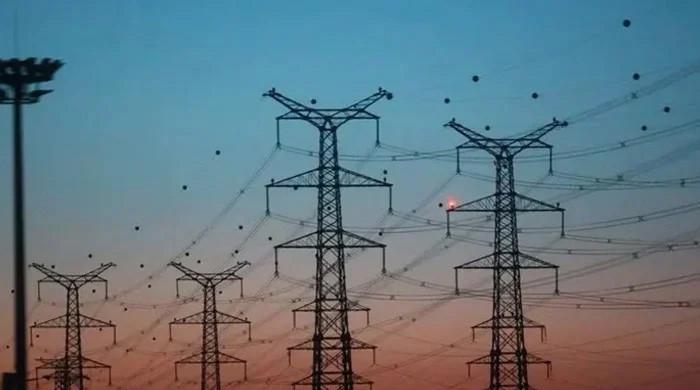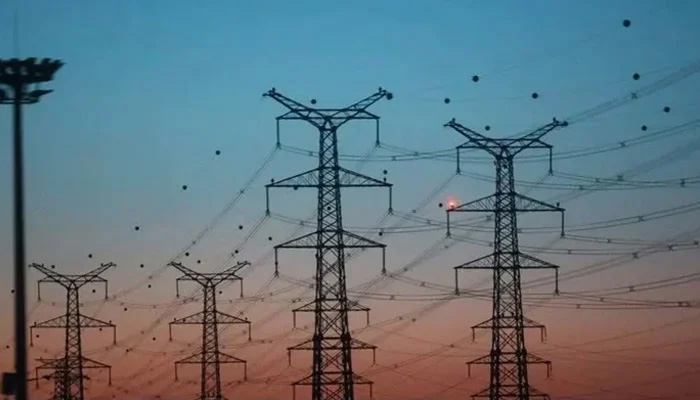Ministry of Energy reveals details of whopping capacity payments to IPPs


- Five IPPs received capacity payments of over 50% of dues in FY23.
- Govt disbursed over Rs769bn to 12 IPPs in FY 2023-24: document.
- List of IPPs that generated electricity at highest prices released.
Days after the government approved “settlement agreements” with several independent power producers (IPPs) to bring down sky-high electricity tariffs in the country, the Ministry of Energy has presented details of whopping capacity payments to the power generation companies during the last two fiscal years.
The Ministry of Energy informed the upper house that the federal government has agreements with 180 IPPs and Rs487 billion was paid in FY23 and a staggering amount of Rs923 billion in FY24 to overall 36 IPPs in terms of capacity payments.
The details were presented during a question hour session in the Senate on Thursday.
The documents, a copy of which is obtained by Geo News, stated that five IPPs had received capacity payments of more than 50% of their due payments in FY2022-23, costing the national exchequer Rs188.824 billion.
The firms included China Power Hub Generation Company (Pvt) Ltd, Karot Power Company (Pvt) Limited, Mira Power Limited, Neelum Jhelum Hydropower Company (Pvt) Ltd, and Star Hydro Power Limited.
In FY 2023-24, the government disbursed Rs769.409 billion to 12 IPPs, 50% more than their due payments.
The firms included China Power Hub Generation Company (Pvt) Ltd, Huaneng Shandong Ruyi Energy (Pvt) Ltd, Karot Power Company (Pvt) Limited, Lucky Electric Power Company Limited, Mira Power Limited, Neelum Jhelum Hydropower Company (Pvt) Ltd, Port Qasim Electric Power Company (Pvt) Limited, Star Hydro Power Limited, ThalNova Power Thar (Pvt) Ltd, Thar Coal Block-1 Power Generation Company (Pvt) Limited, Thar Energy Limited, and The Hub Power Company Limited.
Besides this, capacity payments were made to 14 IPPs, including 5 in FY23 and 9 in FY24 to those power plants which operated only at 10% capacity or remained fully non-functional.
The IPPs, which received capacity payments in FY23, included Hub Power, Rousch Pak Power Ltd, Fauji Kabirwala Power Company Ltd, Altern Energy Ltd, and Davis Energen (Pvt) Limited.
China Power Hub Generation Company (Pvt) Ltd, Port Qasim Electric Power Company (Pvt) Limited, Saba Power Company (Pvt) Ltd, Pak Gen Power Limited and others were included among those firms which received capacity payments.
Additionally, the ministry also unveiled details of power companies that generated electricity at the highest and lowest prices in the country.
Pak Gen Power Limited topped the list of three IPPs which generated electricity at the highest price of Rs36.21 per kilowatt (KW) followed by Rs35.3 per KW by Fauji Kabirwala Power Company Ltd and Rs34.72 per KW by Nishat Chunian Power Limited 34.72.
IPPs that generated power at the lowest rates include Uch Power Ltd produced per KW electricity for Rs3.1, Thar Coal Block-1 Rs5.53 per KW, and Engro Powergen Thar (Pvt) Ltd Rs5.56 per KW.
Two days ago, the federal cabinet had greenlighted the “settlement agreements” with IPPs running on bagasse — a move that the regime says would benefit the national exchequer by Rs238 billion.
The development came two months after the premier announced the pre-mature termination of power purchase agreements (PPAs) with the five oldest IPPs, with annual savings of Rs60 billion or around Rs411bn over the remaining term of their contracts.
Last month, Federal Minister for Power Awais Leghari had revealed that negotiations with 11 more IPPS were currently underway to reduce power tariff.
Briefing a session on the “Bijli Sahulat Package”, Laghari had said that the government terminated power purchase agreements with five IPPs, a move expected to save the economy billions of rupees by reducing capacity payments.
He claimed that Pakistan would no longer be among countries generating expensive electricity in near future.
The federal government was under immense pressure to reconsider its agreements with the IPPs following outcry across the country as the addition of capacity payment charges inflated the power bills beyond the affordability of the inflation-burdened masses.



